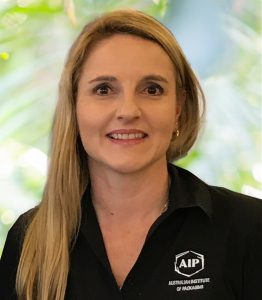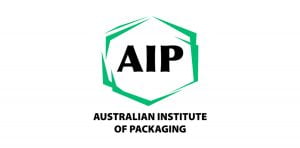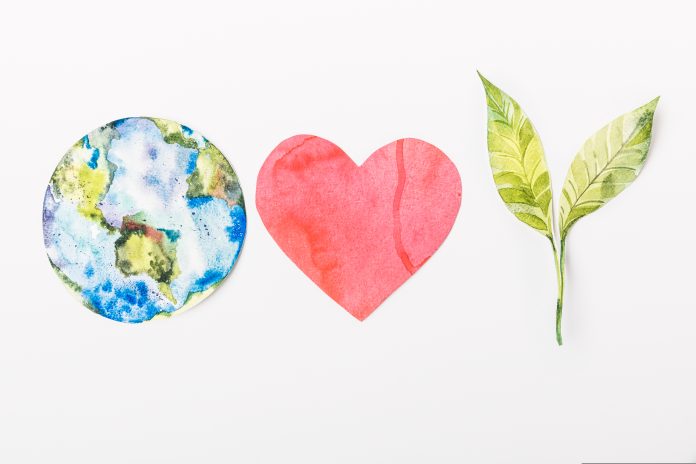 When you think of outdoor furniture, roads, bollards, fences, patio decking and even footbridges you might not realise that a growing number of these items are made incorporating ‘soft plastics’ as a way to recycle flexible packaging and materials that have no home at this moment in the current kerbside recycling systems in Australia.
When you think of outdoor furniture, roads, bollards, fences, patio decking and even footbridges you might not realise that a growing number of these items are made incorporating ‘soft plastics’ as a way to recycle flexible packaging and materials that have no home at this moment in the current kerbside recycling systems in Australia.

By Australian Institute of Packaging Executive Director Nerida Kelton.
Of the nearly 1.1 million tonnes of plastic packaging placed onto the market in 2017–18, approximately 352 000 tonnes (33%) were soft plastics. However, only 29,000 tonnes or 8% of the soft plastic materials was recycled, with around 28,000 tonnes being recycled from commercial and industrial sources and only 1,000 tonnes from consumers.
This low recycling figure for soft plastic has highlighted the need for industry and government to give added focus to develop a strong national consumer collection program for soft plastics, combined with investment in additional reprocessing facilities, and innovation to include recycled content in flexible materials. Changes to procurement strategies are key to stimulate further investment in soft plastic recycling and reprocessing and to ensure that soft plastics are seen as a valuable resource that can be recycled, rather than disposed of as waste.
What does the term soft plastics really mean?
Soft plastics are traditionally polyolefins which is a collective description for plastics types that include (PE) polyethylene including HDPE (high density polyethylene), LDPE (low density polyethylene), LLDPE (linear low-density polyethylene), PP (polypropylene) and (BOPP) biaxially-oriented polypropylene. The polyolefins are the most acceptable materials for current soft plastics recycling and reprocessing programs.
There are other potential materials used in soft plastics including: (PET) polyethylene terephthalate, (PVC) polyvinyl chloride, (PS) polystyrene, (EVOH) ethylene-vinyl alcohol copolymer, (PLA) polylactic acid, bioplastics, aluminium, nylon, and paper. These materials reduce the value of polyolefins and, in some cases are incompatible with the majority of reprocessing systems.
The composition of soft plastic packaging can be broken down into two groups: mono-layer and multi-layer. Mono-layer packaging refers to the use of one polymer in the development of the material and quite often the material is PE. Multi-layer packaging is composed of two or more materials bonded together through co-extrusion or lamination. The use of different materials types together provides a package with unique barrier and mechanical properties.
Are soft plastics recyclable in Australia?
Currently most Australian kerbside collection of recyclable packaging does not accept soft plastics. This restriction is required as the conventional material recovery facilities (MRF) does not allow for the handling of film and flexible plastics as it gets caught in machinery and causes failures or damage.
This restriction has also meant that many consumers are simply not aware that Australia does have recycling and reprocessing facilities available for the recovery of post-consumer soft plastic packaging. In fact, Australia has a number of companies actively and passionately working hard to create new innovative solutions that will ultimately minimise the amount of soft plastics that head to landfill or end up in the oceans and the environment. Companies including RED Group, Replas, Close the Loop, Plastic Forests, Newtecpoly and others.
How are household soft plastics collected in Australia?
The RED Group is a sustainability and resource recovery organisation that developed and implemented the REDcycle Program in 2011. REDcycle is an innovative, recovery model for post-consumer, soft plastic packaging. The program started with 100 Melbourne supermarkets and today has 1,830 retail drop off points located primarily in Coles and Woolworths supermarkets across Australia. At this level of stores and locations provided for consumer drop off of soft plastic packaging, the REDcycle program is classified as ‘widely accepted’ recyclability with more than 80% of the population having access to the collection bins.
The REDcycle program is a true product stewardship model where manufacturers, retailers and households share the responsibility to create a sustainable future for as many soft plastics as possible. The cost of collecting and processing the material is covered by many of Australia’s best-known brand owners and retailers. Together Coles, Woolworths and brand owners enable the REDcycle national program to make it easy for the consumers to actively participate in the collection and recycling of household soft plastics in Australia.
What types of soft plastics are accepted through the REDcycle program?
In the simplest of terms, the REDcycle program accepts clean, dry, uncontaminated flexible packaging materials that meet the REDcycle material thresholds and have been approved through the Australasian Recycling Label (ARL) program. Packaging such as bread bags, pasta and rice bags, old shopping bags, biscuit and ice cream wrappers, confectionery and frozen food packaging, plastic bags, cereal box liners, fresh produce bags and Australia Post plastic satchels are all accepted via REDcycle.
The REDcycle program is recognised through Australian Packaging Covenant Organisation (APCO) and the ARL program and have established ‘return to store’, ‘store drop off’ or REDcycle logos on-pack for the consumers. All brand owners must become a REDcycle partner to be able to use these symbols on-pack and are also required to join APCO. The ‘return to store’, ‘store drop off’ or REDcycle logos on-pack communicate to consumers that they can return the packaging to collection points within major retailers across Australia.
Partners within the REDcycle program have access to the Packaging Recyclability Evaluation Portal (PREP) to assess the recyclability of their packaging within Australian recovery systems. Packaging and artwork must also be approved through the ARL program and be able to meet the REDcycle recycling requirements to include the logo on-pack.
How do I know what soft plastics can and cannot be returned in-store?
Keep an eye out for the ‘return to store’, ‘store drop off’ or REDcycle logos that are increasingly being included on packaging as a part of the wider ARL program. If the packaging does not have one of these logos on-pack then it is either not a part of the program, or the materials have not been approved as recyclable under the REDcycle program. These logos are a true indicator of whether the soft plastics can be returned to the store for collection and recycling via the REDcycle program.
Consumers are encouraged to set up a soft plastics bin at home for clean and dry packaging and then return the plastics back to the retail stores that are participating in the REDcycle program.
Usually the REDcycle collection bins are located at the front of stores near the checkout and maybe something that you have never noticed before. If you are unable to locate the REDcycle bin, please ask one of the staff.
There are now 66 partners in the REDcycle program that includes brands, packaging suppliers and retailers. The REDcycle program has recovered over 950 million pieces of soft plastic returned by customers since 2012. The REDcycle program successfully recovers approximately one million pieces of soft plastics per day and has diverted enough soft plastics to circle Australia three times.
The RED Group site redcycle.net.au offers detailed information on what soft plastics are accepted through the REDcycle program and provides a list of all collection points across the country for the consumers.
What happens to the household soft plastics after it is collected from the retailers?
The RED Group collect, sort the recovered soft plastic film packaging and then send it on to their local partners:
- Replas is Australia’s leading mixed recycled plastic manufacturer which aims to provide a solution for plastic waste by delivering quality cost-effective sustainable products. Replas blends this mixed plastic with rigid plastics to form a material viable for use in the manufacturer of new recycled plastic products. The company produces a range of over 200 recycled plastic products which includes bollards, signage, outdoor furniture, fitness equipment and Enduroplank/decking as well as products suitable for traffic control, parks and gardens and the utilities industry. Replas aims to turn waste into robust recycled plastic products; all the while offering sustainable alternatives to the unnecessary use of virgin materials. replas.com.au
- Close the Loop utilise REDcycle material as a component of high-performance recycled asphalt additive for road infrastructure known as Tonerplas. Tonerplas is Close the Loop’s ground-breaking asphalt additive, which enhances the characteristics of asphalt. It produces a high-quality road surface, that last 65% longer than traditional asphalt and contributes a major solution to the problematic waste issue of soft plastics. The formulated product is melted into the asphalt mix. A key partner Downer Group then adds recycled glass and recycled asphalt pavement to the mix to create a superior lower carbon product with that results in higher quality roads. Every 1km of road paved with plastic and glass modified asphalt uses approximately: 530,000 plastic shopping bag equivalents, 168,000 glass bottle equivalents, Waste toner from 12,500 printer cartridges and 20% reclaimed asphalt pavement (RAP). closetheloop.com.au
- Plastic Forests uses REDcycle material as a component of products such as mini wheel stops and air conditioner mounting blocks. Plastic Forests became the first company globally to commercialise a unique dry-cleaning process to recycle contaminated soft plastics, without using water. Used soft plastics are recycled into resin for use by the plastics industry or may be repurposed by Plastic Forests into a range of sustainable GreenMongrel products including dunnage, underground cable cover, garden edging and root barrier and the brand new GardenBed-Heart. plasticforests.com.au
How can you get involved in REDcycle?
Everyone has a role to play in both collection of household soft plastics and the purchasing of end-products made from the recycled content. There are several ways that you can get involved in the program both at work and at home.
If you would like to contribute personally then start by making a ‘soft plastics bin’ at home and at work and arrange to return the packaging to your local collection point on a regular basis. Encourage others to do the same within your workplace and family.
Keep an eye out for products and brands that are advertising the ‘return to store’ and REDcycle logos on pack and next time you are purchasing products consider which brands are committed to the 2025 National Packaging Targets and National Waste Strategy.
The next time you need a deck, fence, garden bed or even a patio consider sustainable solutions that are made from soft plastics. Not only are these solutions designed to be low maintenance they are durable and capable of withstanding the harsh Australian climate.
Reach out to your local councils and encourage them to support keeping soft plastics out of landfill by purchasing roads containing Tonerplas and Replas products or reviewing their procurement of outdoor furniture for recreational areas. Imagine if every school, park, recreational facility, government department and office building in Australia committed to purchasing products made from recycled content.
We all have a role to play and I look forward to seeing procurement strategies that actively encourage the purchase of recycled content and more companies taking the lead in purchasing these products to ensure we create a more sustainable world.
About Nerida Kelton MAIP
Nerida Kelton MAIP is the Executive Director for the Australian Institute of Packaging and the ANZ Board member for the World Packaging Organisation. She is also a member of the International Packaging Press Organisation (IPPO).
She has worked in the packaging industry for over 22 years and holds a position on the Department of Environment and Energy’s National Food Waste Strategy Steering Committee and is the AIP lead for the Save Food Packaging Consortium project within the Fight Food Waste Cooperative Research Centre. She is committed to helping the packaging industry understand the role that packaging plays in minimising food waste and to also support recognition of brands that are designing innovative Save Food Packaging. Nerida is also passionate about helping to educate and train packaging professionals about the importance of sustainable and circular packaging design and recognising Best Practice in this area.
 About Australian Institute of Packaging (AIP)
About Australian Institute of Packaging (AIP)
The Australian Institute of Packaging (AIP) is the peak professional body for packaging education and training in Australasia; helping to shape the careers of generations of packaging professionals – from packaging technologists to international packaging business leaders along with a host of people in associated disciplines – sales and marketing, purchasing, production and environment.
The AIP was founded in 1963 in response to a need for packaging technologists to interact and provide a professional identity for individuals within the packaging industry. Having served the industry for over 55 years the AIP is the only professional body designed to provide professional and personal development to all levels of the packaging industry; educational offerings include the Diploma in Packaging Technology, the Certificate in Packaging, the Master in Food & Packaging Innovation, Certified Packaging Professional (CPP) Designation, Fundamentals of Packaging Technology course, half-day training courses, conferences, technical forums, site visits, Influential Women’s Mentoring program, internship program and more. The AIP covers Australia, New Zealand, and parts of Asia.


